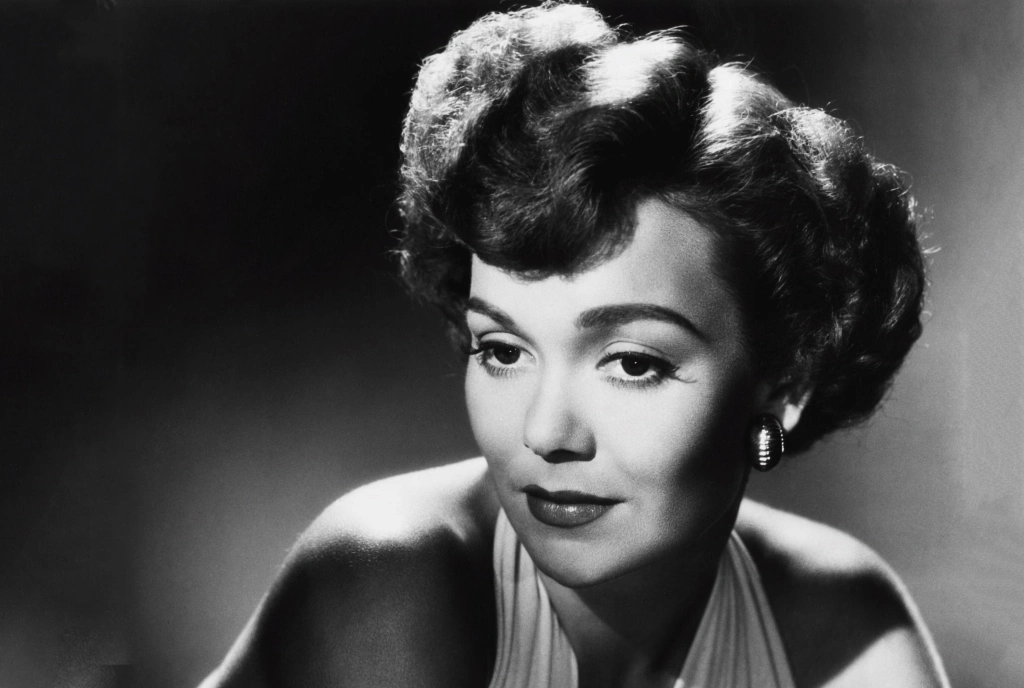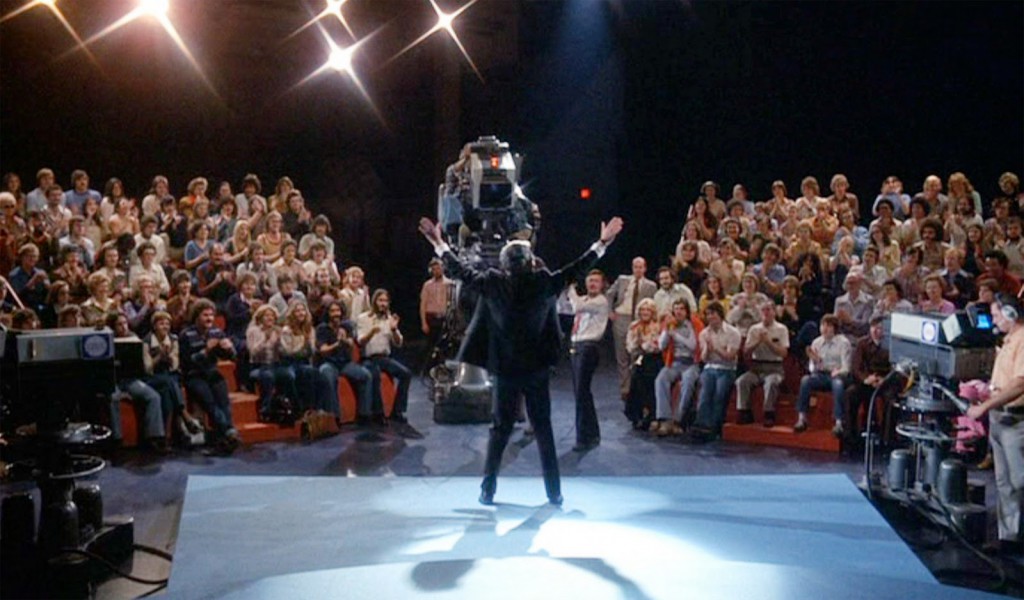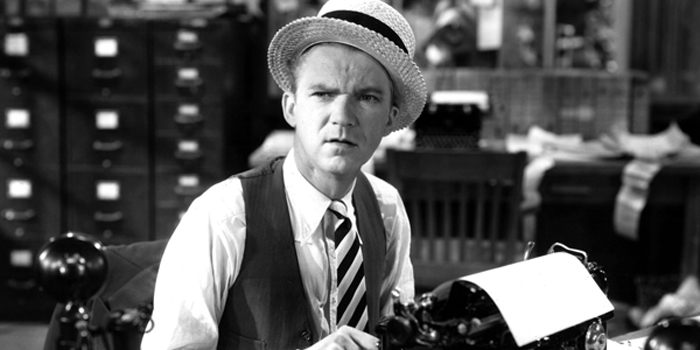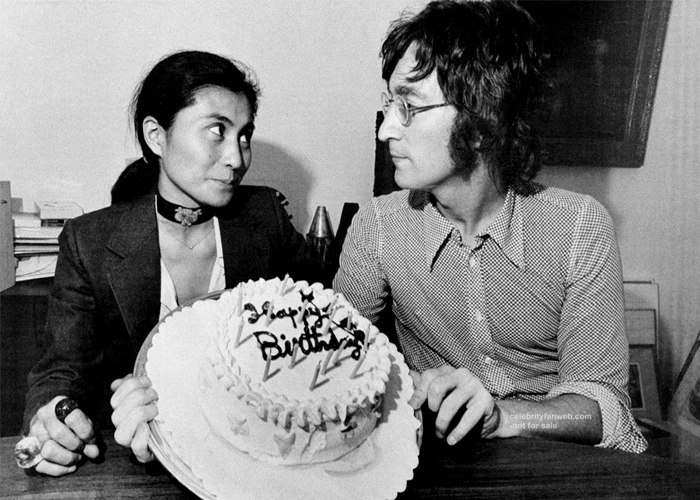
“Ok, Future Boy. Who’s the president of the United States in 1985?”
“Ronald Reagan.”
“Ronald Reagan? The ACTOR? Then who’s Vice-President, Jerry Lewis? I suppose Jane Wyman is the First Lady!”
Audiences in 1985 rollicked with laughter at this irresistible jab at then-president Ronald Reagan in Robert Zemeckis’ Back to the Future. The Great Communicator himself was a huge fan of the film (in his 1986 State of the Union address, he stole the famous line “where we’re going we don’t need roads”) and by all accounts, laughed so hard at the Ronald Reagan joke during a White House screening that he asked the projectionist to back it up and play it again.
The joke, however, also has a convenient–yet factually incorrect–additional jab in mentioning actress Jane Wyman. In Doc Brown’s 1955, Ronald Reagan and Jane Wyman had already been divorced for 6 years. By then, Reagan had met his future life partner, fellow actress Nancy Davis. Wyman had already been re-married and, again, divorced…never to marry again.
The fact that Wyman is a footnote in the joke, in this writer’s opinion, is somewhat of an accidental metaphor for Wyman’s career. Because to many (if not most) people today who are familiar with the name (the marvelous film community on social media notwithstanding) she is perhaps most readily associated with having been Mrs. Ronald Reagan. Or, if not, then as the scary ice queen Angela Channing from the popular ’80s primetime soap Falcon Crest.
But Wyman’s work as an actress is so much more than her brief marriage to a future president, or her third-act popularity in a soap opera.
Like all the great movie stars, Jane Wyman was a self-made career woman who set out with a goal and never stopped until she reached it. And reach it she did, becoming Warner Bros’ most important leading lady during the late ’40s and early ’50s.
Here are 5 things you need to know about Jane Wyman.
#5. She Was a Foster Kid.

Born Sarah Jane Mayfield, Jane Wyman did not have a happy childhood. Her father died when she was just 4 years old, and her mother left her to be raised by foster parents.
“I was raised with such strict discipline that it was years before I could reason myself out of the bitterness I brought from my childhood.” — Jane Wyman
She briefly lived in Southern California before her foster family moved to Missouri where she dropped out of high school at 15. The teenage Jane Wyman moved to Hollywood, where she lied about her age so she could work odd jobs to support herself (waitressing, etc.,) while she looked for work in the movies.
#4. Age Did Not Hurt Her Career — it Helped.

Being pretty, talented, disciplined, and determined wasn’t enough to make Jane Wyman an overnight success. She started off her career as an extra in bit parts throughout the late 1930s before gradually (emphasis on gradually) working her way up to minor supporting roles in B movies. Then came leading roles … in B movies. And yet in a town where the older an actress gets the less attractive she is to casting directors, the opposite proved to be the true with Wyman.
At age 31, after having worked in Hollywood for more than 15 years, she finally got her big break in Billy Wilder’s critically-acclaimed drama The Lost Weekend. Wyman had been struggling along in movies with titles like Make Your Own Bed and Tugboat Annie Sails Again, and was always a fun highlight, even in ensemble movies like Hollywood Canteen. But she was hardly on par with fellow Warner Bros actresses like Bette Davis and Joan Crawford.
All that changed in 1945 when director Billy Wilder decided to cast against type for Lost Weekend, choosing debonair Ray Milland as the troubled, alcoholic writer, and Jane Wyman as his long suffering girlfriend. Wilder accurately observed, back in those days an alcoholic was normally someone in the movie meant for comic relief, like a W.C. Fields character bumping into a bar. But there’s nothing comic about Milland’s character in the film and there’s nothing funny about his illness. As America recovered from the War, thousands of G.I.’s were desperate for comfort in any form, which made the idea of a successful, talented man like Milland’s character becoming dependent on the bottle all too real. Director William Wyler had hinted at this with Fredric March’s character in The Best Year’s of Our Live, but it was Wilder’s The Lost Weekend that made the disease a central focus for the first time.
The heavy role gave Wyman the chance to prove her leading lady potential. As was Wyman’s habit, she worked hard. The hard worked paid off, earning her a Academy Award nomination and, in so doing, establishing her as a serious actress.
#3. She Won an Oscar for Playing a Rape Victim
Hot on the heels of the success for The Lost Weekend came Johnny Belinda. Based on a hit Broadway play of the same name, Johnny Belinda is pretty daring stuff for Studio-Era Hollywood, when censorship ruled the industry. A deaf-mute farm girl named Belinda (Wyman) meets a handsome doctor (Lew Ayres), who takes an interest in her and teaches her sign language. The two spend a lot of time together and develop a bond that begins to flirt with romance — that is until Belinda’s world is turned upside down when one of the local villagers (and a family friend) brutally attacks and rapes her. Belinda gives birth 9 months later to a boy whom she names ‘Johnny’, and believe it or not, that’s just the start of the emotional roller coaster.
Now, Wyman was serious about her work, and she dissected the role of Belinda, constantly challenging herself. But during shooting, she became convinced that something about her performance wasn’t authentic. And then it hit her: even though she’d spent months studying sign language, she could still hear…and the camera knew it. So, Wyman had a doctor make special ear plugs to block out as much sound as possible. Her dedication to the role paid off, earning her the only Oscar of her career.
Johnny Belinda received a whopping 12 nominations, including all the big ones: Best Picture, Director, Actress, Actor, Supporting Actor and Supporting Actress. Wyman was the favorite to win the Oscar, against such heavyweights as Barbara Stanwyck (who never won a competitive Oscar, by the way), Ingrid Bergman, and Olivia de Havilland.
When she won the award on March 24th, 1949, her acceptance speech went down in Oscar history as one of the most memorable. Like everything Wyman did in life, it was straight and to the point:
“I accept this award very gratefully — for keeping my mouth shut. I think I’ll do it again!”
#2. She is the Original Queen of Soaps.

As mentioned earlier, Wyman is widely remembered for her successful run on the prime time 80s soap Falcon Crest where she played the cold, domineering matriarch Angela Channing. But Wyman first ventured into soap opera territory some 30 years earlier, with two landmark melodramas from director Douglas Sirk: Magnificent Obsession and All That Heaven Allows.
By 1954, Jane Wyman was an Academy Award winning actress with a slew of critically acclaimed performances under her belt. But she was also 37-years-old and aware that her career needed a breath of fresh air. Her last great performance had been in 1951’s The Blue Veil, but her pictures since then had been dicey at best. Therefore, she was only too happy to be loaned out from Warner Bros to Universal for one of their “prestige pictures”: a remake of a 1935 Irene Dunne/Robert Taylor film Magnificent Obsession, directed by Douglas Sirk. Hollywood has always loved a good remake and, thankfully, this was a good one. So good, in fact, that it went on to be Universal’s top moneymaker of the year and landed Wyman with her 4th and final Academy Award nomination.
There’s no doubt that Jane Wyman was the star of the production as far as Universal was concerned: The budget was $780,000 and Wyman’s salary was a sizable chuck of that, at $150,000. That also meant Universal could cast a very affordable contract player to star opposite her. His name: Rock Hudson. What critics of the time dismissed as a predictable “woman’s picture” has, over the years, come to be thought of as one of the most socially critical films of the 1950s in its depiction of the smothering repression of 1950s society.
The two were quickly teamed up again in another Sirk film, All That Heaven Allows. Posters read: “The magnificent stars of Magnificent Obsession!”
#1. She Never Once Discussed The Fact She Could Have Been FLOTUS.

Johnny Belinda was also life-changing in another way for Jane Wyman. During filming, Wyman and her co-star Lew Ayres were having a not-so-secret affair. Wyman had been married to fellow actor Ronald Reagan for eight years, but their marriage was on the rocks. In fact, Wyman would be married a total of 5 times in her life.
Some women just aren’t the marrying kind — or anyway, not the permanent marrying kind, and I’m one of them. — Jane Wyman
Wyman was becoming increasingly restless with Reagan’s growing involvement in politics. He was, in fact, at the time the president. Of the Screen Actors Guild, that is. And even though Wyman’s relationship with Ayres would quickly fizzle, she still filed for divorce from Reagan.
Over the years, Wyman rarely discussed her marriage to Reagan. When her career experienced a revitalization in the early 1980s with the popular primetime soap Falcon Crest, it just so happened to coincide with her ex-husband becoming the 40th President of the United States. Wyman had long been asked about her thoughts on her ex-husband’s politics, as he’d been the Governor of California, and the questions certainly didn’t go away after he ascended to the presidency.
But Wyman summed it up in one, short, perfect response: “It’s bad taste to talk about ex-husbands and ex-wives. Also, I don’t know a damn thing about politics.”
That’s called class, and Jane Wyman had it in spades.





Leave a comment